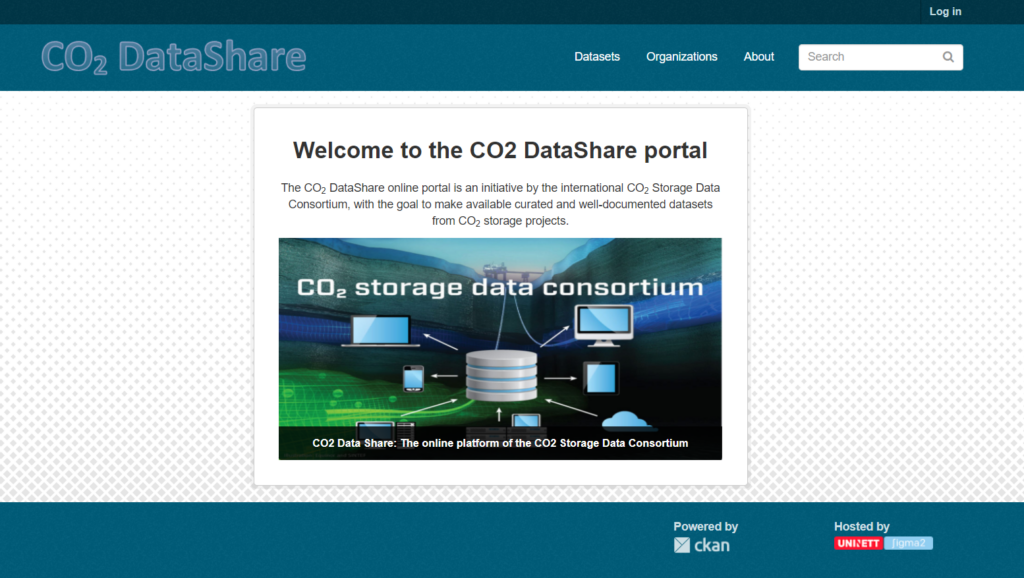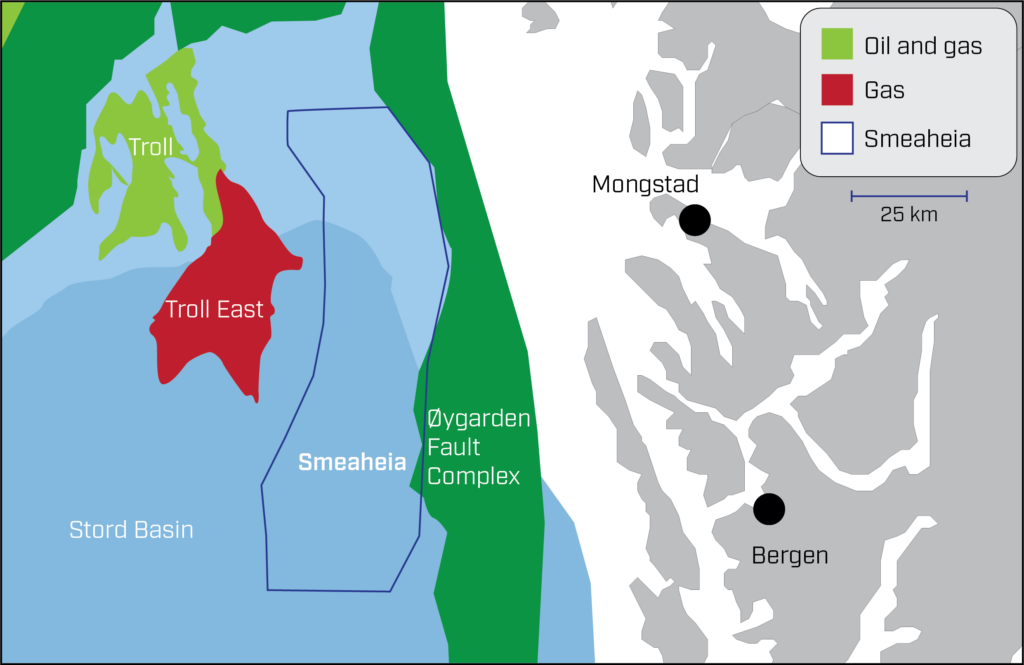CO2 Data Share
Budget
7.15 MNOKCLIMIT Financing
45%Project number
617195Project partners
- • SINTEF AS
- • University of Illinois
- • Equinor
Project leader
SINTEFProject period
10/2017 - 10/2020Granted
12/10/2017Background:
The project CO2 Storage Data Sharing Consortium – CO2 Data Share – is a joint initiative between
Norwegian and American actors from industry, research and the authorities to ensure standard procedures
for data processing, efficient data exchange, quality-assured use of data and strengthened internationally
collaboration.
The project is based directly on the preliminary project CO2 Storage Data Consortium (CSDC).
The idea for the preliminary project emerged as a result of several meetings between representatives from research and industry in the US, Canada and Norway in 2015 to discuss opportunities for sharing well-defined datasets from CO2 storage projects such as Illinois Basin – Decatur Project, Quest, Sleipner and Snøhvit. There is broad agreement that data sharing from CO2 storage projects is critical to accelerating the implementation of CCS on a large scale. The preliminary project has, among other things, been based on a survey and workshop in connection with GHGT-13 developed a strategy for establishing an infrastructure for data sharing and has identified technical solutions for implementation. A simple prototype for data sharing based on new Sleipner data has been developed to shed light on issues related to workflow and development data portals.
In connection with the Carbon Sequestration Leadership Forum (CSLF) in November 2015, US Secretary of Energy Ernest Moinz announced the establishment of the Large-Scale Saline Storage Project Network for sharing learning, operational experience and “best practice” from international CO2 storage projects.
The preliminary project has aimed to support the network’s ambition. The results from
The pilot project was presented to CSLF Technical Groups in Abu Dhabi in May 2017 and was met with positive interest.
Project description summary
The project CO2 Storage Data Sharing Consortium – CO2 Data Share – aims to establish a common platform for international sharing of reference data related to CO2 storage. The concept is designed to promote research and development of new technology based on data and experience from demonstration and
field projects such as Sleipner, Snøhvit, Illinois Basin – Decatur Project, In Salah, Ketzin and CO2 Lab Svelvik, thus strengthening the possibility that CCS can quickly contribute to reduced greenhouse gas emissions. ‘CO2 Data Share’ includes the establishment of a digital infrastructure and network activities for strengthened international cooperation.
The project is organized in 4 work packages:
– WP1: Consortium operation and outreach
– WP2: Specification of ‘CO2 Data Share’ pilot
– WP3: Implementation of ‘CO2 Data Share’ pilot
– WP4: ‘CO2 Data Share’ Operation
The steering group in the preliminary project is intended to be continued. It is jointly managed by Statoil and the University of Illinois, and has members from the US Department of Energy, IEAGHG, Gassnova and SINTEF.
It is an objective to expand the partnership with more countries in order to secure financing for the operation of the platform beyond the three years covered by the project application. As in the preliminary project, SINTEF will be the project manager and representatives from Statoil and the University of Illinois will contribute to the implementation.
The potential of the project
Easy access to quality-assured data from pioneering projects for C02 storage and sharing of knowledge from application of data will strengthen research and help build international research capacity inside CCS. This is essential to minimize uncertainty associated with C2 storage in deep geological areas formations and a necessary basis for the development and validation of cost-effective methods for mapping of storage capacity, optimal injection and monitoring for safe storage over a long period of time.
The importance of high quality data is clearly demonstrated in a comprehensive research portfolio based on previous data from Sleipner and documented through a large amount of scientific publications from institutions around the world.
‘CO2 Data Share’ shall provide access to well-documented data sets particularly suitable for support Research and development. Through the formulation of key questions, the use of data will contribute to better understanding of critical uncertainty and challenges related to the characterization of storage locations, modeling, monitoring and verification. The platform is thus not intended as storage space for large amounts of data, but a tool designed to support targeted research. The project will also be an arena for international knowledge sharing and collaboration, where publications related to datasets are registered and dialogue is facilitated through user forums and webinars.
Project goals
The goal for ‘CO2 Data Share’ is through the continuation of an established international consortium to develop and operate a platform for sharing reference data from pioneering projects in CO2 storage.
Access to quality-assured data sets and strengthened international cooperation based on such data is critically important to minimize uncertainty and reduce the cost of injecting and storing CO2 in the deep geological formations.
The sub-goals for the project are:
• Offer simple solutions that reduce the threshold (workload and costs) for data owners to share quality-assured data with international professional environments and at the same time safeguard the data owner’s rights
• Facilitate simple solutions for finding, accessing and using well-documented data sets from
demonstration projects
Stimulate the systematic sharing of results from research with available data sets
• Promote networking and international research collaboration
The project supports CLIMIT-Demo’s ambitions both in relation to the development of new knowledge and technology for cost-effective and secure CO2 storage, as well as international deployment of CCS. ‘CO2 Data Share’ is affiliated with and coordinated with FME NCCS, and supports NCCS’s ambition on industry-driven innovation for faster implementation of CCS. NCCS embraces the entire O2 chain and solutions developed in ‘CO2 Data Share’ can have transfer value to data sharing for capture and transport.
Digital data sharing services are also very relevant for various industries and the results from
the project can be transferred to other areas such as oil and gas production. Examples are data
from costly industrial scale experiments for multiphase flow and intelligent use of data
from permanent reservoir monitoring.



